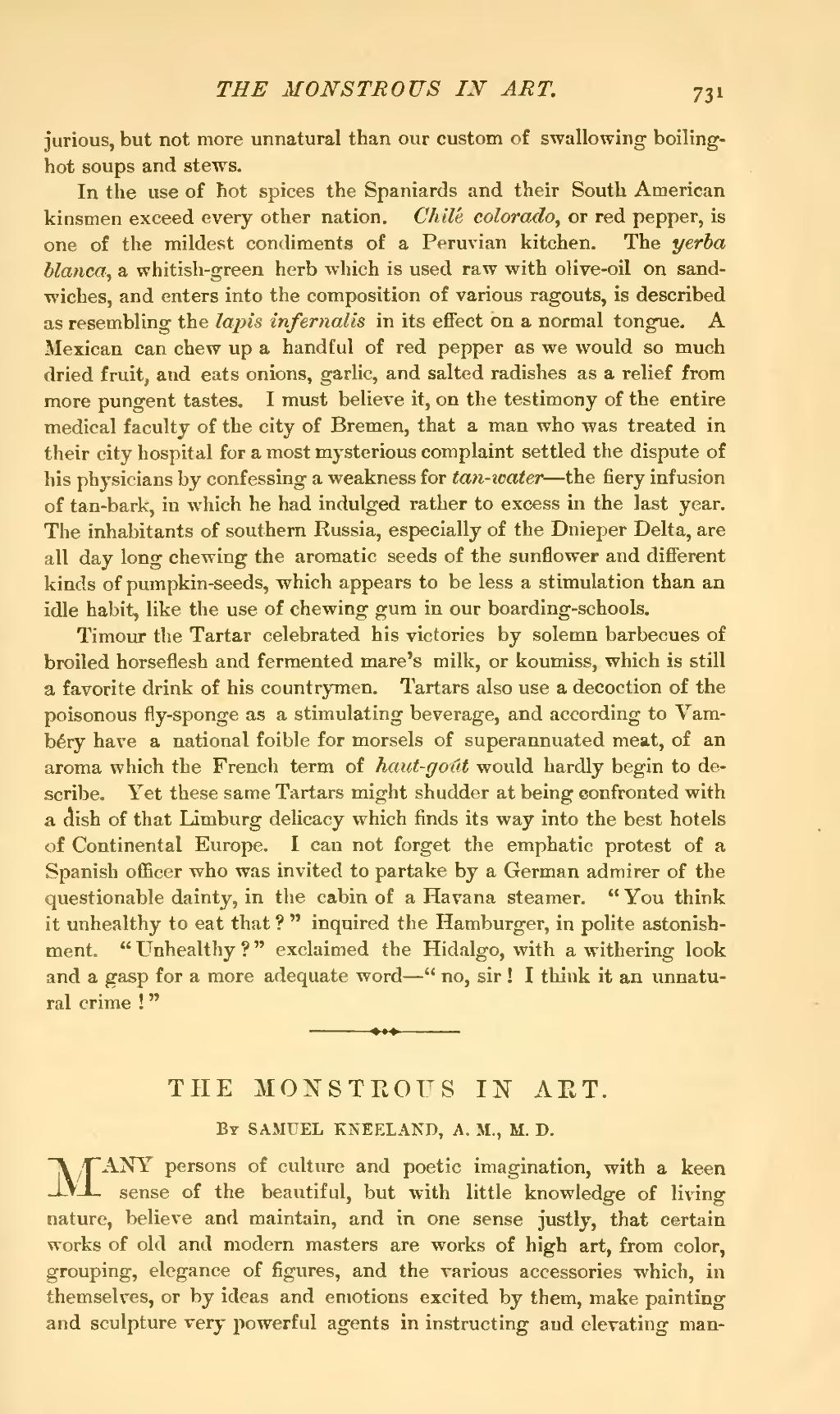jurious, but not more unnatural than our custom of swallowing boiling-hot soups and stews.
In the use of hot spices the Spaniards and their South American kinsmen exceed every other nation. Chilé colorado, or red pepper, is one of the mildest condiments of a Peruvian kitchen. The yerba blanca, a whitish-green herb which is used raw with olive-oil on sandwiches, and enters into the composition of various ragouts, is described as resembling the lapis infernalis in its effect on a normal tongue. A Mexican can chew up a handful of red pepper as we would so much dried fruit, and eats onions, garlic, and salted radishes as a relief from more pungent tastes. I must believe it, on the testimony of the entire medical faculty of the city of Bremen, that a man who was treated in their city hospital for a most mysterious complaint settled the dispute of his physicians by confessing a weakness for tan-water—the fiery infusion of tan-bark, in which he had indulged rather to excess in the last year. The inhabitants of southern Russia, especially of the Dnieper Delta, are all day long chewing the aromatic seeds of the sunflower and different kinds of pumpkin-seeds, which appears to be less a stimulation than an idle habit, like the use of chewing gum in our boarding-schools.
Timour the Tartar celebrated his victories by solemn barbecues of broiled horseflesh and fermented mare's milk, or koumiss, which is still a favorite drink of his countrymen. Tartars also use a decoction of the poisonous fly-sponge as a stimulating beverage, and according to Vambéry have a national foible for morsels of superannuated meat, of an aroma which the French term of haut-goút would hardly begin to describe. Yet these same Tartars might shudder at being confronted with a dish of that Limburg delicacy which finds its way into the best hotels of Continental Europe. I can not forget the emphatic protest of a Spanish officer who was invited to partake by a German admirer of the questionable dainty, in the cabin of a Havana steamer. "You think it unhealthy to eat that?" inquired the Hamburger, in polite astonishment. "Unhealthy?" exclaimed the Hidalgo, with a withering look and a gasp for a more adequate word—"no, sir! I think it an unnatural crime!"
| THE MONSTROUS IN ART. |
By SAMUEL KNEELAND, A.M., M. D.
MANY persons of culture and poetic imagination, with a keen sense of the beautiful, but with little knowledge of living nature, believe and maintain, and in one sense justly, that certain works of old and modern masters are works of high art, from color, grouping, elegance of figures, and the various accessories which, in themselves, or by ideas and emotions excited by them, make painting and sculpture very powerful agents in instructing and elevating man-
